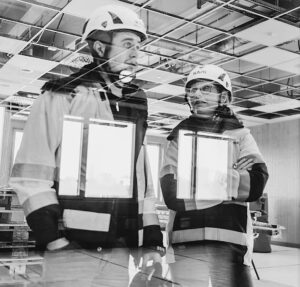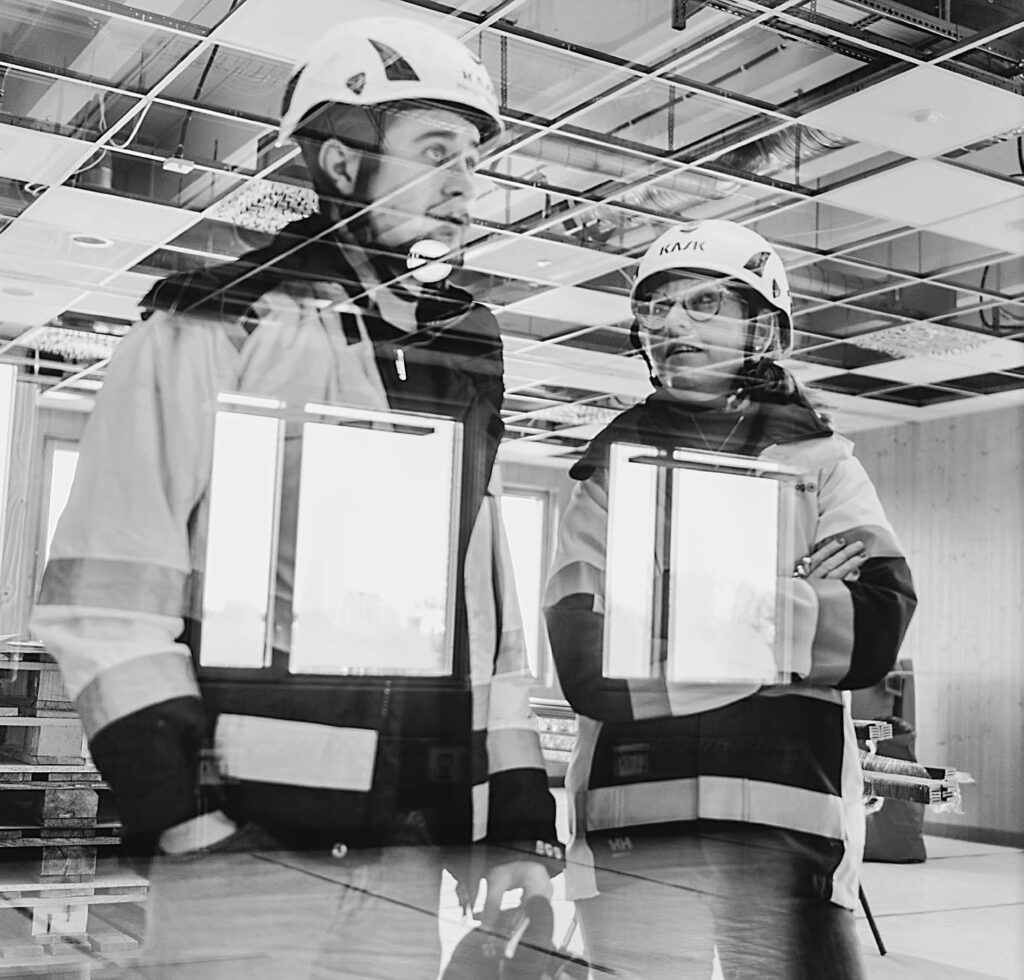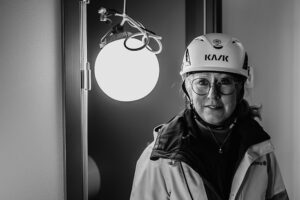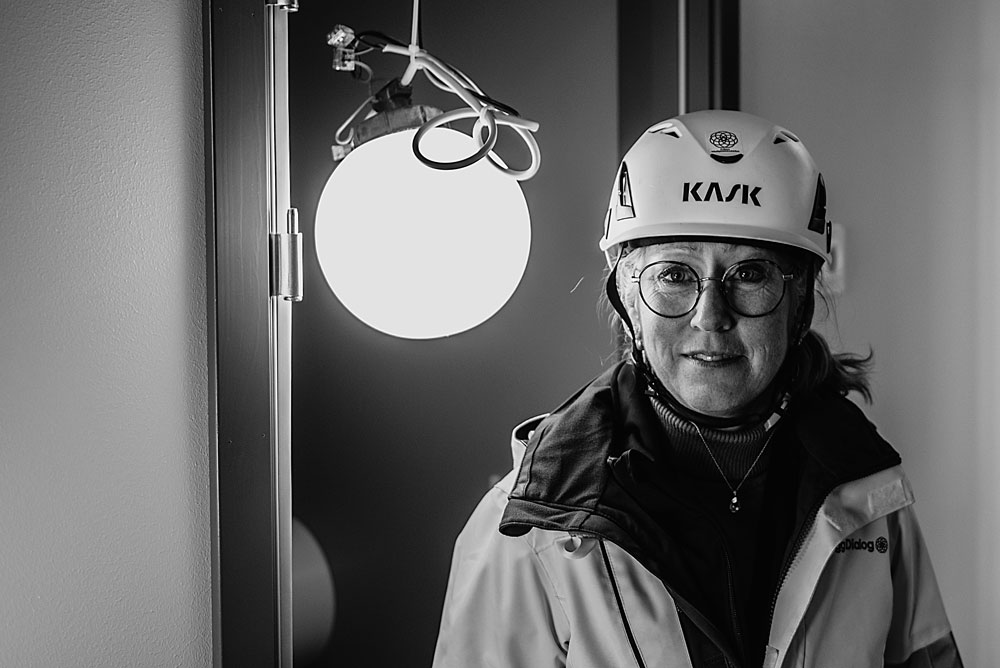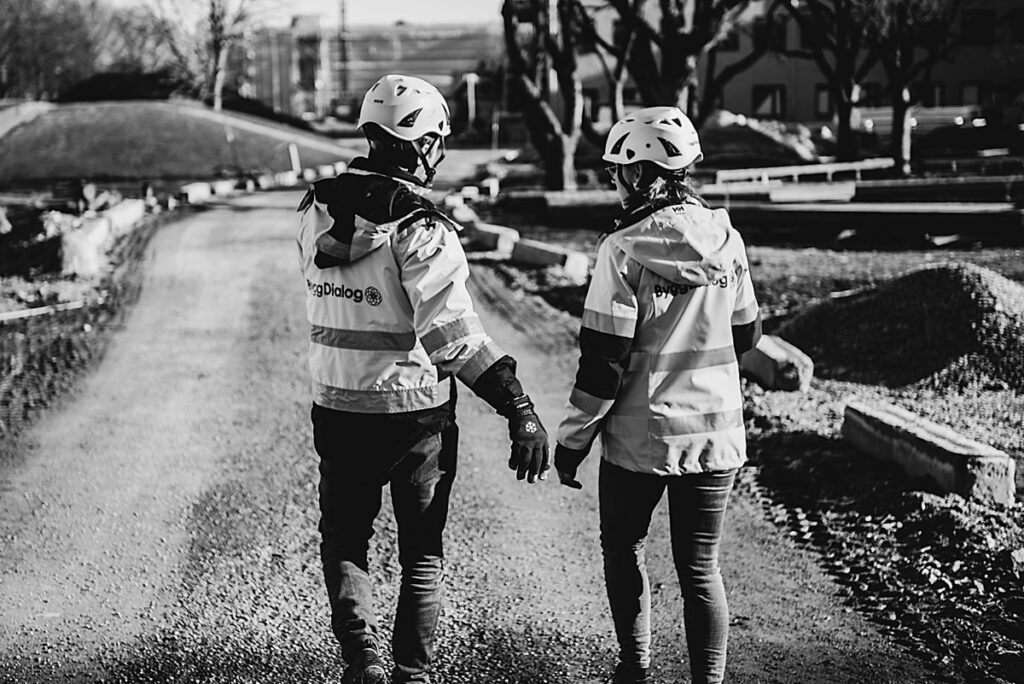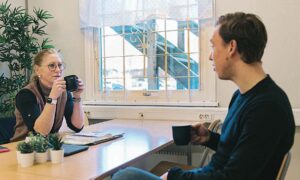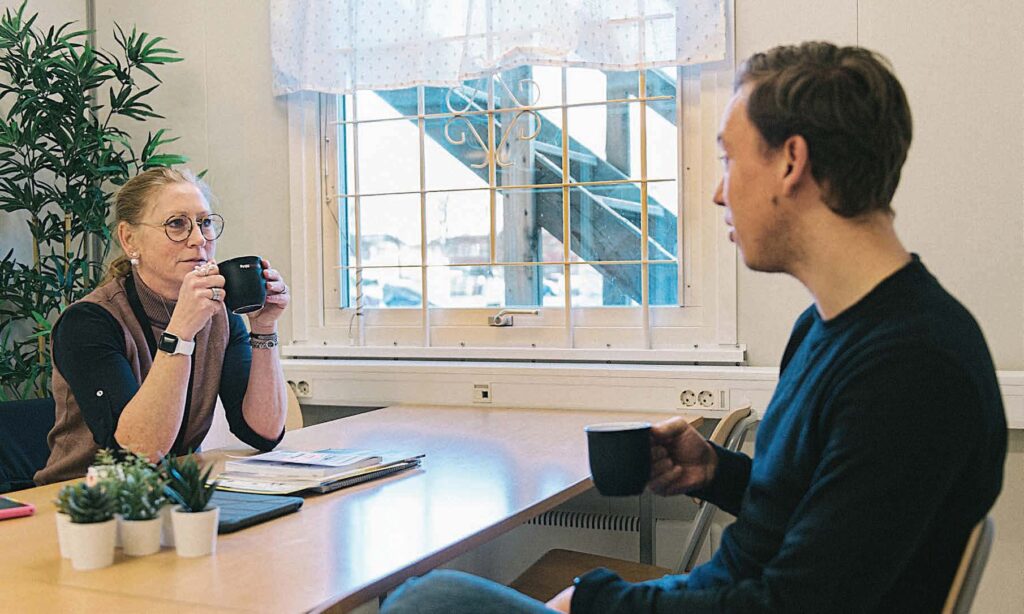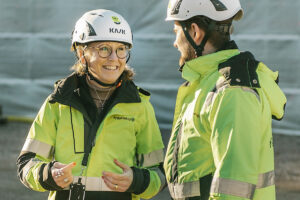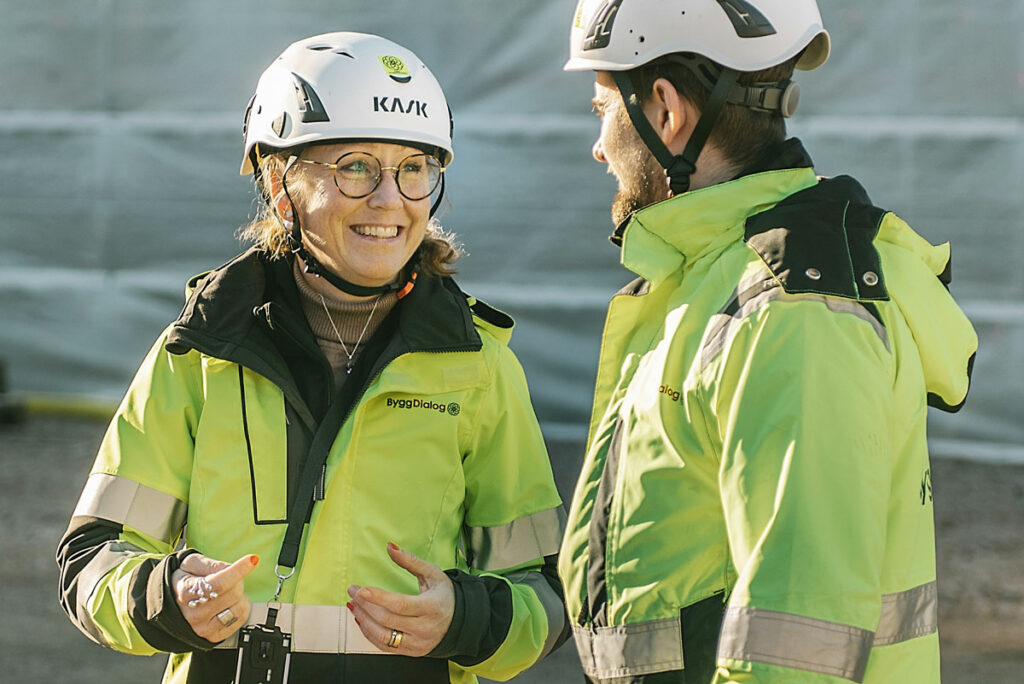Emma Björkenstam practises what she preaches. As an area manager at ByggDialog, her work involves ensuring that the collaboration between different parties in a construction process works. Being able to collaborate is essential, as a single person seldom has the solution to a problem. Collaboration not only contributes to better solutions, but also provides added value in everyday life: If we talk more to each other, work becomes both easier and more enjoyable.
There is no mistaking on Emma Björkenstam’s commitment to and interest in creating interfaces between researchers and companies. Collaboration has been a common thread throughout Emma’s professional life and is part of everything she takes on. Her current role at ByggDialog involves creating the conditions for a safe process, which everyone has the chance to influence. Keeping to schedules is as important as ensuring employees’ wellbeing. Frequently, these projects are complex: dialogue and collaboration are prerequisites for simplifying the construction process. This approach is based on the research of one of the founders, Anna Rhodin, on the need to ensure that everyone’s perspectives and knowledge are systematically drawn on in the development and implementation of construction projects. ByggDialog’s method is thus in itself an example of taking up research results and using them in practice.
Well, this is who I am as a person. I work all over the place. Now I even work in a company that focuses on collaboration. I believe that everyone’s knowledge is needed. When it comes in at the right level and you have some kind of shared vision – we get a better product.
That Emma works all over the place is perhaps best illustrated by the fact that her car is her mobile office, always on the road. Here she alternates between telephone meetings and audiobooks. Her pragmatic approach to most things permeates her ability to find time for both work and relaxation – nothing seems particularly complicated and, according to Emma, most things can be solved, as long as you focus on the task and do it together!



